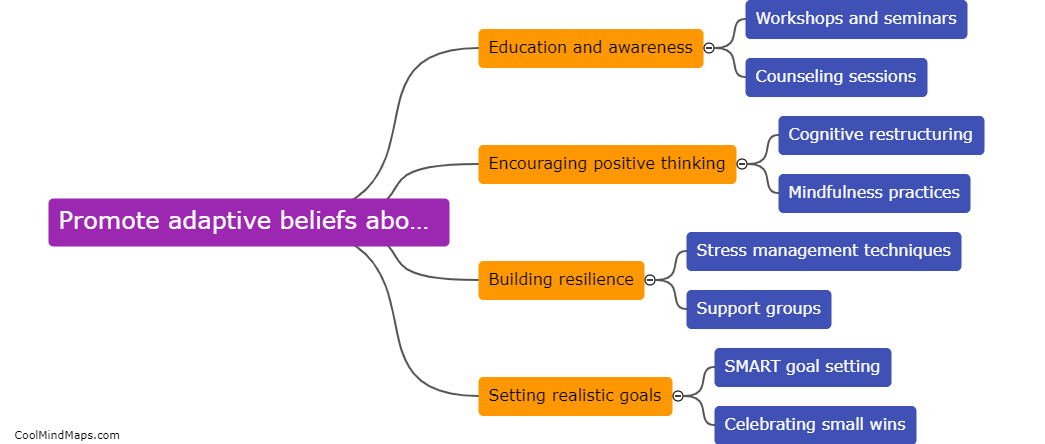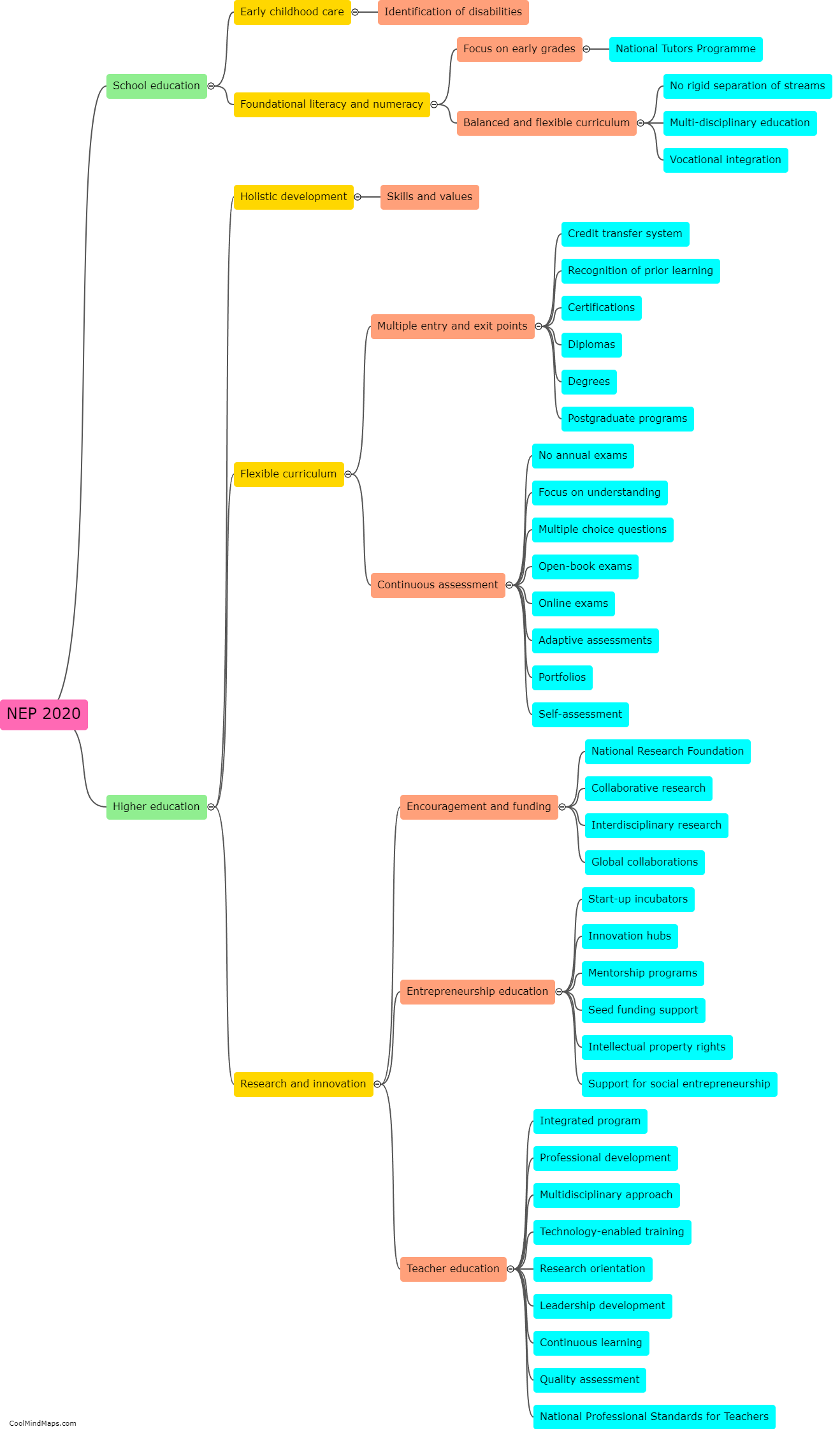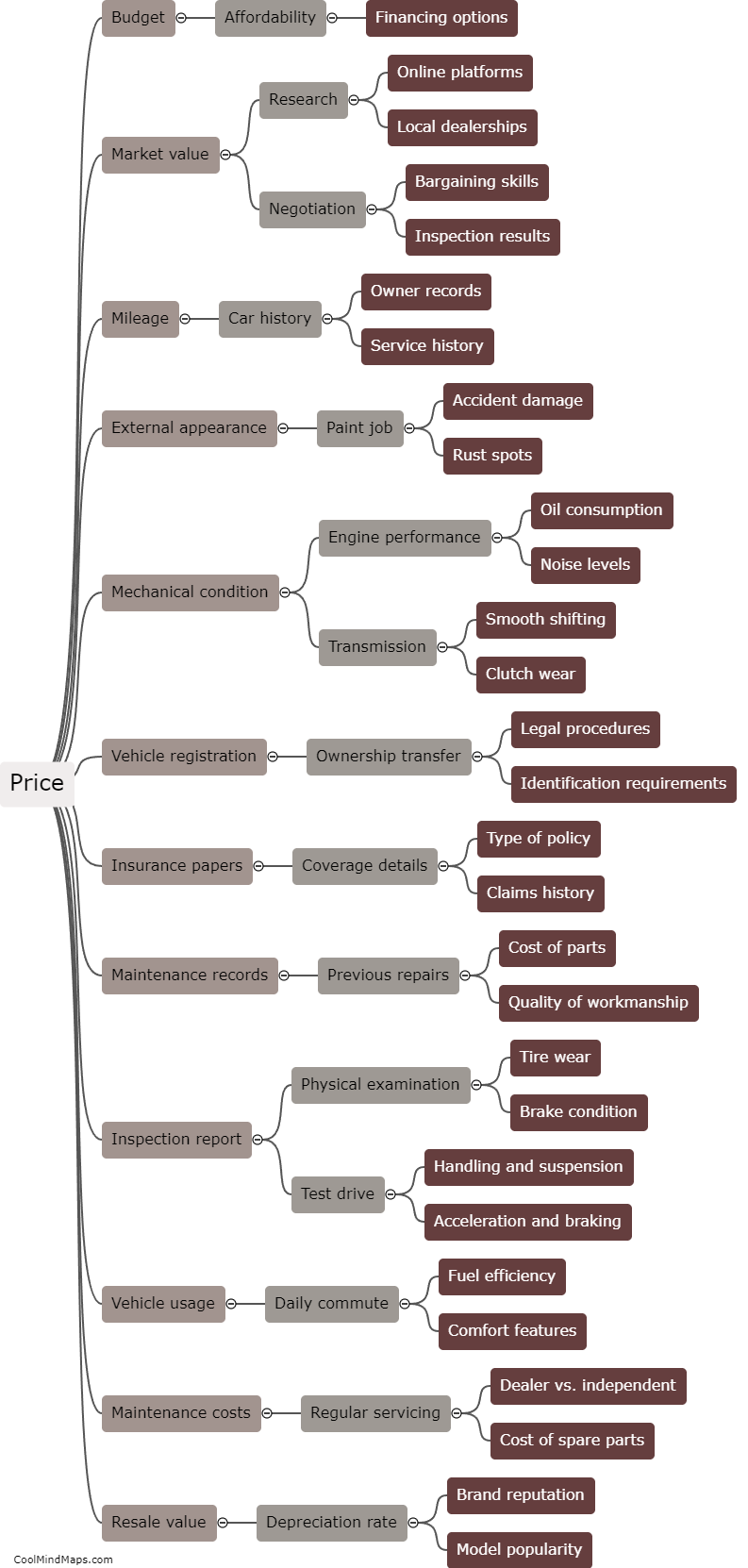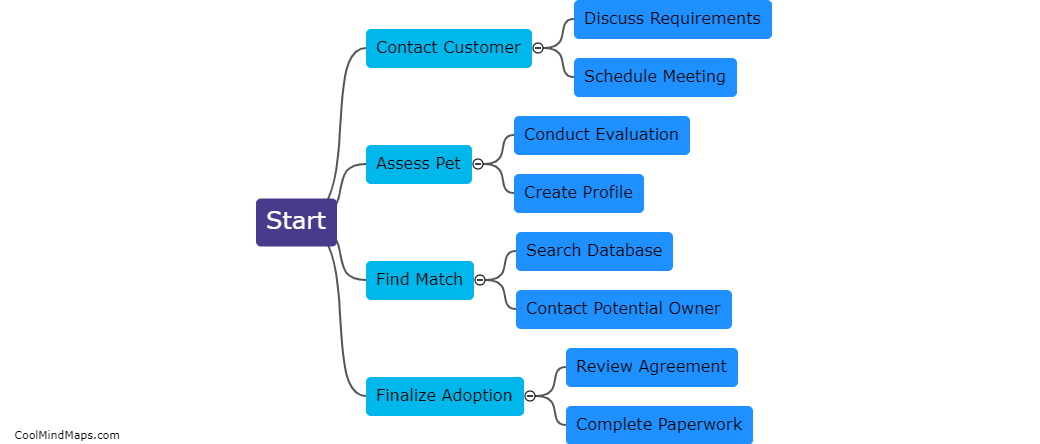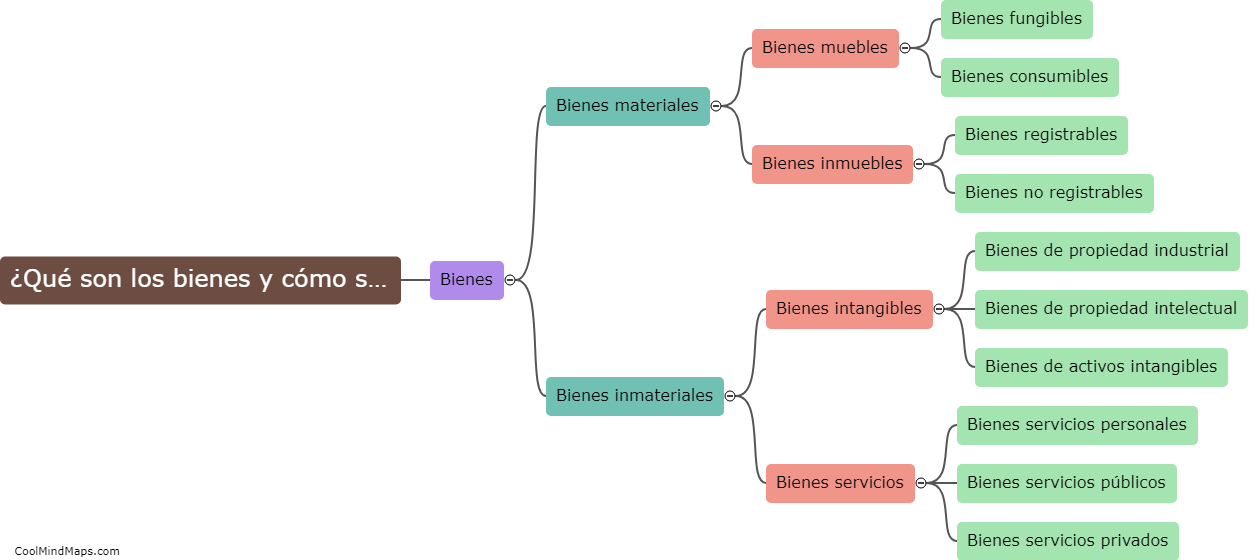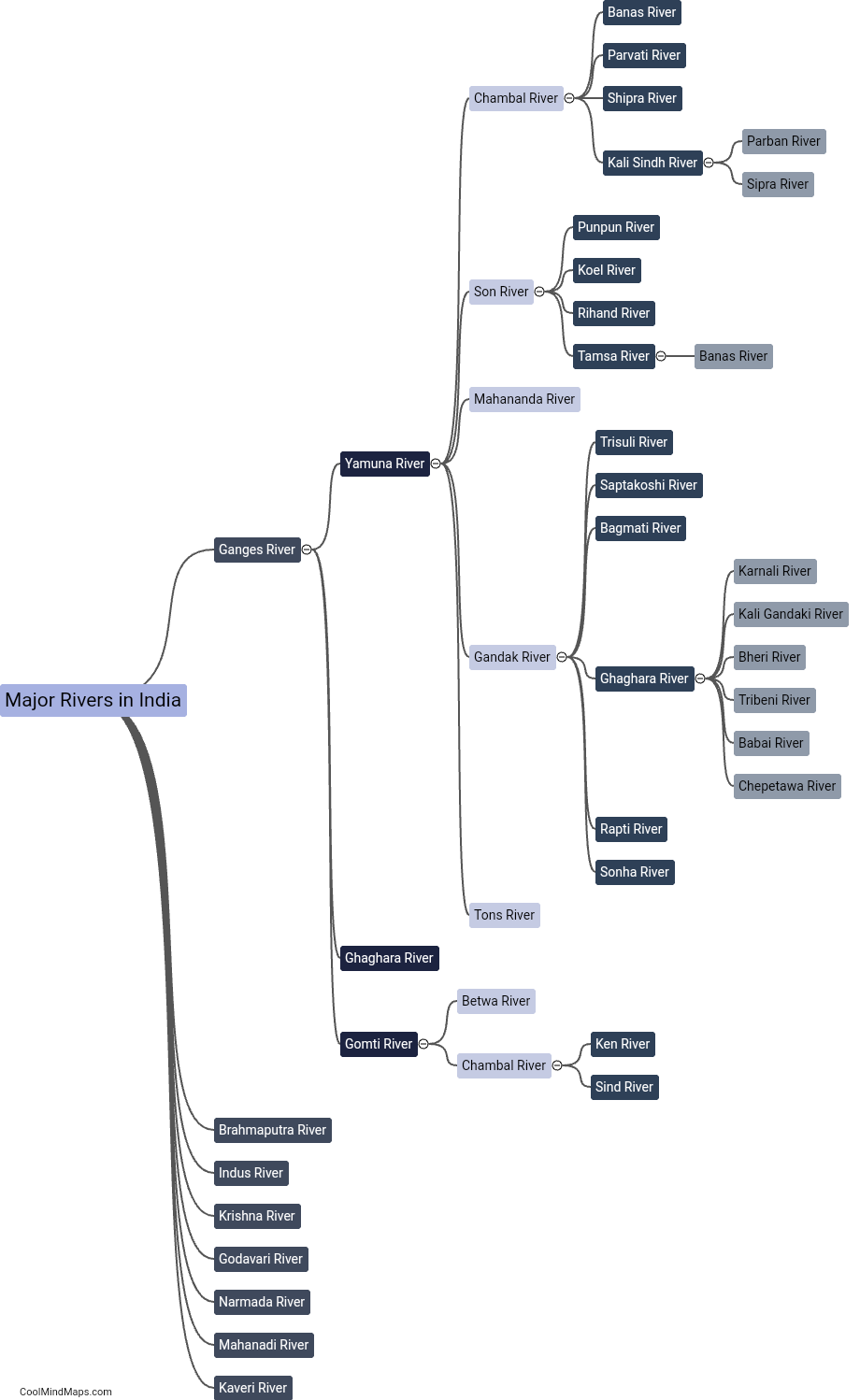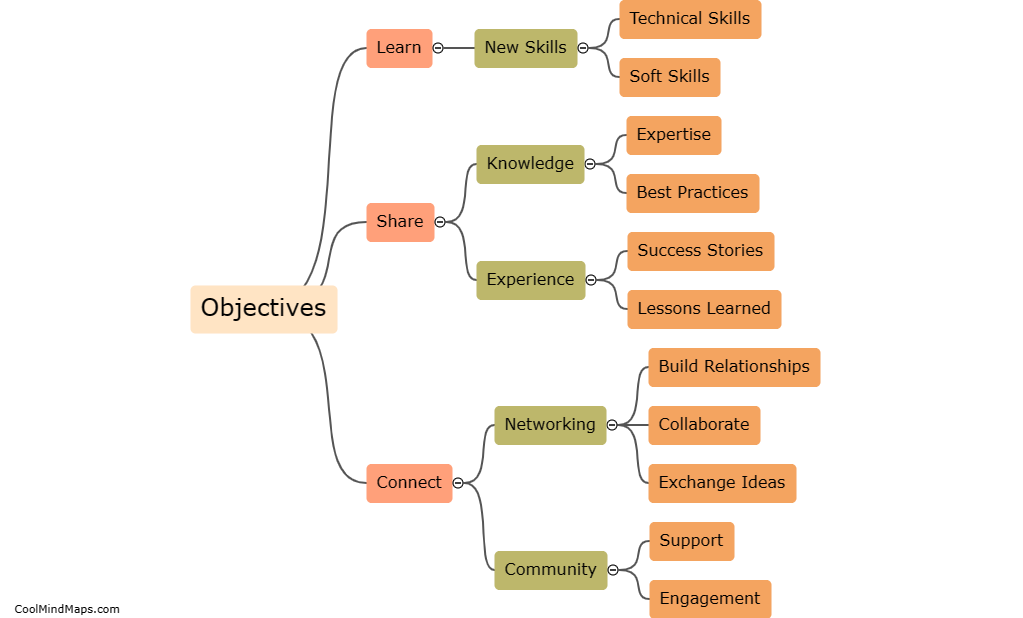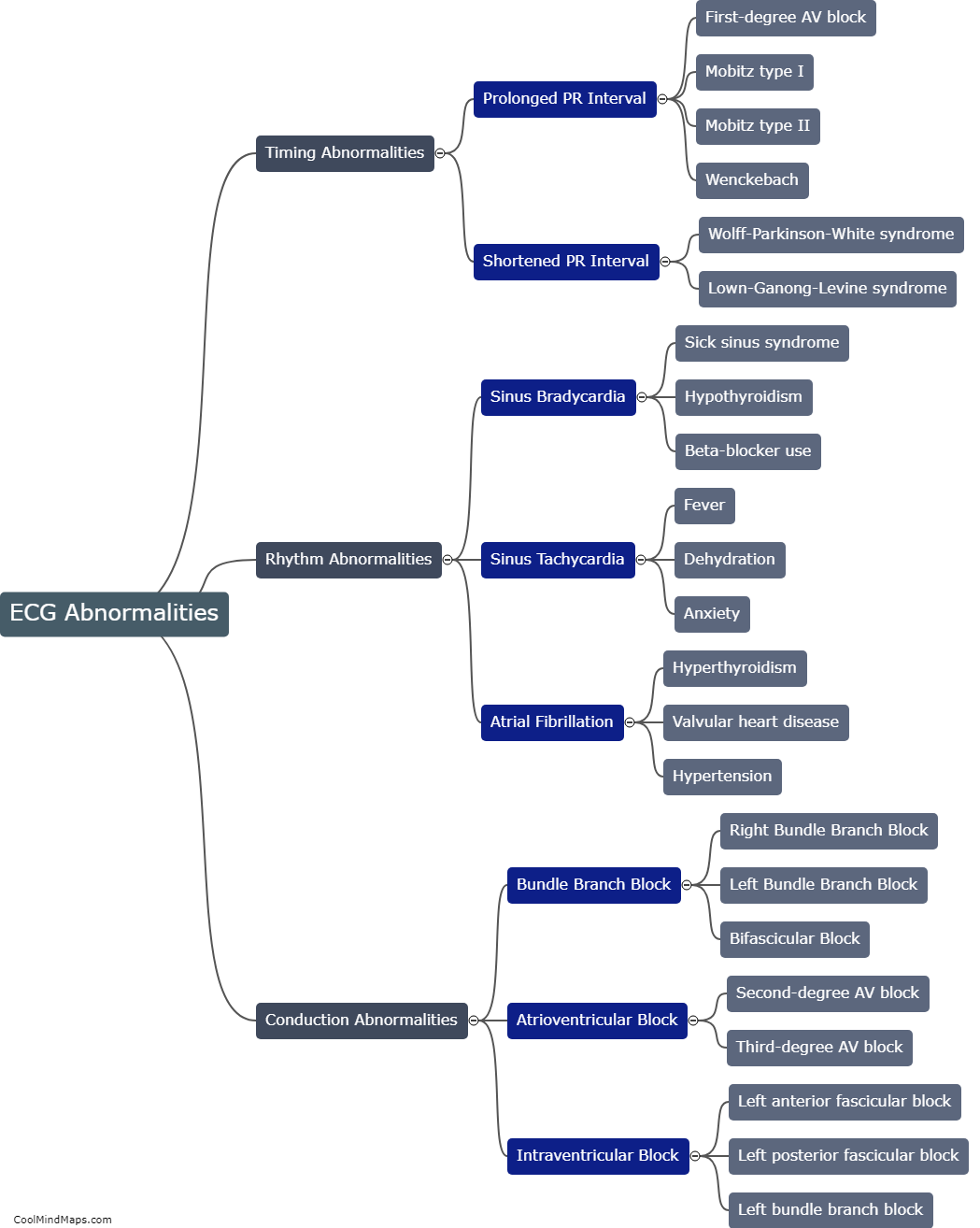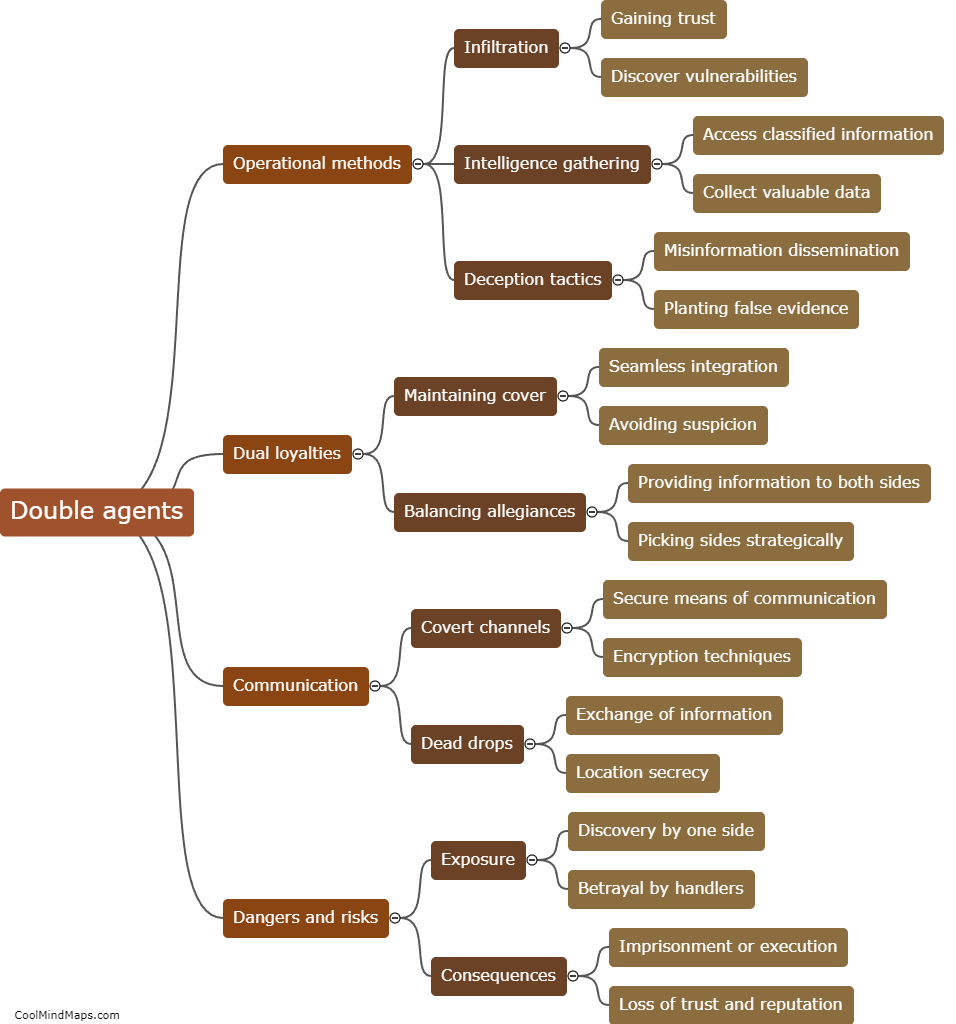What are the drawbacks of knowledge sharing?
While knowledge sharing is generally encouraged and beneficial, there are certain drawbacks to consider. One drawback is the risk of intellectual property theft, where valuable and confidential information can be accessed and misused by competitors or unauthorized parties. Additionally, knowledge sharing can lead to information overload, making it difficult to sift through an overwhelming amount of data to identify relevant and reliable information. In some cases, individuals may also avoid sharing knowledge due to personal concerns such as losing a competitive advantage or fear of becoming obsolete. Lastly, knowledge sharing can sometimes lead to misunderstandings or misinterpretations, as information can be subjective or misconstrued, leading to potential mistakes or errors in decision-making. Despite these drawbacks, with proper safeguards and balanced approach, knowledge sharing can still bring immense benefits to individuals and organizations.
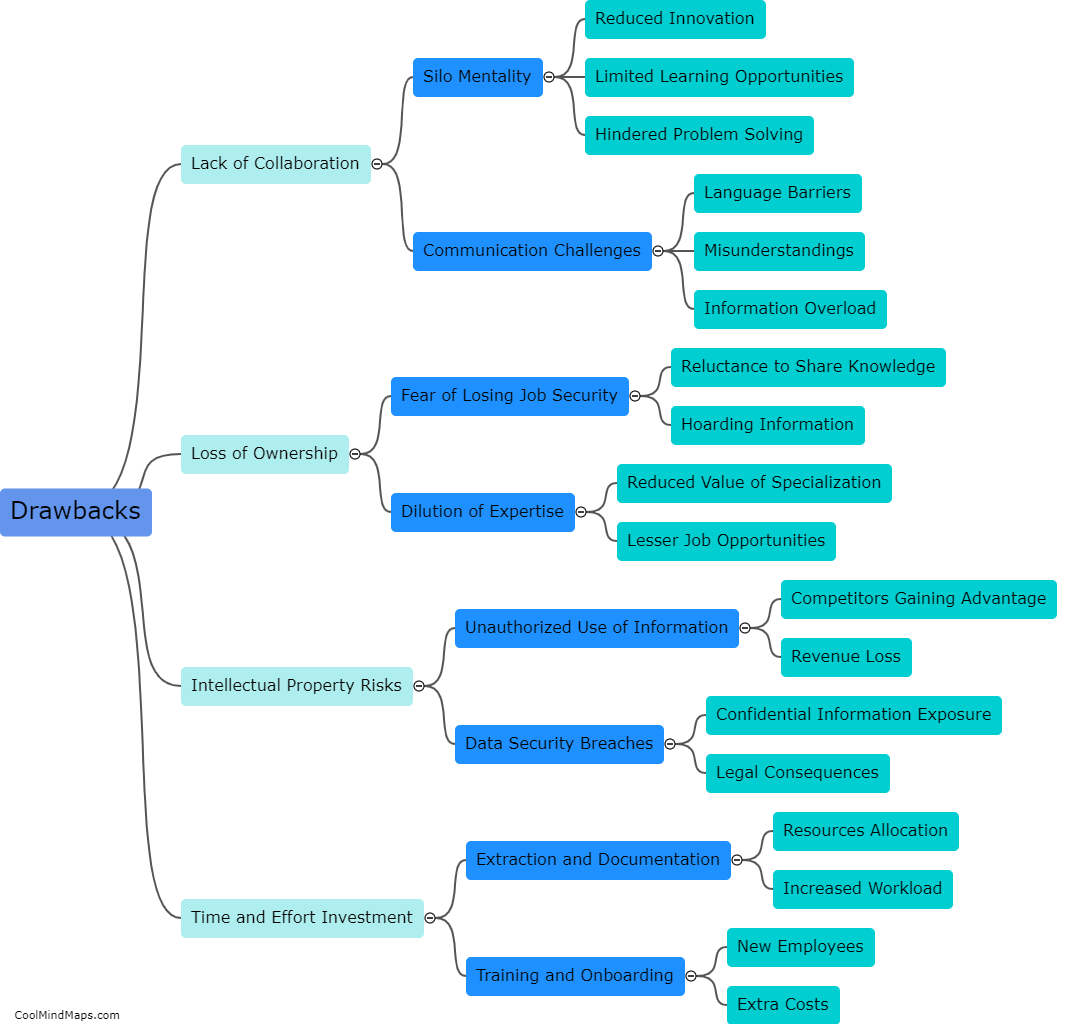
This mind map was published on 3 December 2023 and has been viewed 106 times.
